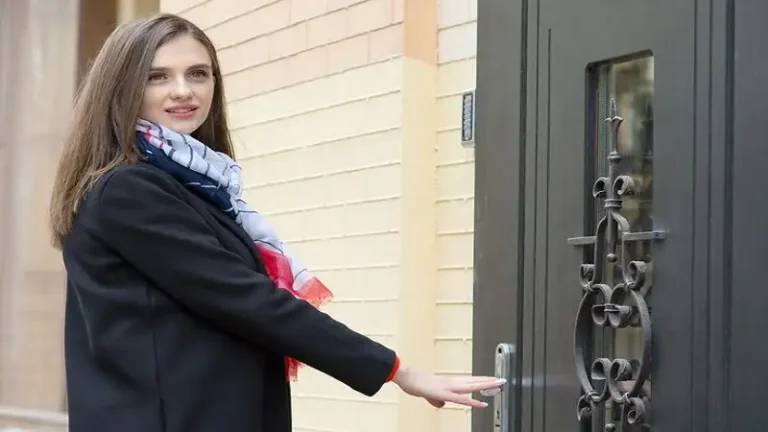Organizing an Estate Cleanout: Tips and Best Practices
Estate cleanouts can be overwhelming, involving the disposal of personal belongings accumulated over a lifetime. From furniture and heirlooms to everyday household items, sorting through and deciding what to keep, donate, or discard can be overwhelming, especially during emotionally charged times. This process often requires careful organization, physical labor, and a delicate balance between practicality and sentimentality. Estate cleanout services can help streamline the process, offering professional support in managing the removal, sorting, and disposal of items, allowing families to focus on the emotional side of the transition.
Create a Plan
Before diving into the physical work, take a moment to create a comprehensive plan. Start by listing all the rooms and areas that need attention, from the attic to the basement. Divide the work into doable portions, ensuring each area is acknowledged. Drawing up a timeline can also help keep you on track, reducing the chance of feeling overwhelmed. Consider dedicating specific days to different areas of the home, like setting aside one weekend for the garage and another for the bedrooms. It’s also helpful to create a checklist of items you know you need to find or specific tasks that need to be completed in each room. The more organized you are, the smoother the cleanout process will go.
Involve Family Members
Estate cleanouts can be emotionally taxing, especially when dealing with a loved one’s belongings. Involving family members can provide emotional support and make the process more bearable. Additionally, they have insights into which items should be preserved as mementos. A family meeting to discuss the process and designate responsibilities can promote a collaborative and efficient effort. Sharing stories and memories as you sort through belongings can also be a therapeutic way to honor your loved one. It’s essential to approach the task with sensitivity and understanding, recognizing that every item might hold significant sentimental value for someone in the family.
Sort Items into Categories
To keep things organized, sort items into categories: keep, donate, sell, and dispose of. This method streamlines the decision-making process and ensures that nothing of value is inadvertently discarded. As you sort:
- Keep: Items of sentimental value or functional use that you or other family members may want to retain. These might include family heirlooms, photographs, and important documents.
- Donate:Usable items in good condition that could benefit others; many charities accept furniture, clothing, and household goods. Donations can be an excellent way to give back to the community and ensure valuable items find new homes.
- Sell Valuable items that might generate extra income, such as antiques, jewelry, or collectibles. Use online marketplaces like eBay or local consignment shops. Garage sales can also be a practical way to sell multiple items in one go.
- Dispose of Damaged or unusable items that need to be thrown away. Recycling things that can be recycled is another aspect of proper disposal that helps to lessen the cleanout’s environmental impact.
This systematic process guarantees that every item is thoughtfully evaluated and that priceless or emotional items are not inadvertently thrown away.
Understanding Disposal Options
Disposal is a significant part of estate cleanouts. It’s essential to understand the waste disposal options available in your area. For hazardous materials, always follow local guidelines for safe disposal. Consider hiring a junk removal service or renting a dumpster for bulky furniture. Local municipalities often have specific regulations or scheduled pickups for bulky items, so check their website for details. Ensuring that items are disposed of properly helps maintain environmental standards and compliance with local laws. Understanding these rules and options beforehand can save time and avoid last-minute hassles.
Donate or Sell Usable Items
Many items in an estate cleanout can find new homes. Consider donating to local charities, which can often arrange pickup for large donations. Additionally, selling items through garage sales or online platforms can earn you extra cash and ensure items are reused. The key is to assess each item’s condition and potential value realistically. While you might want to hold onto everything, remember that it’s more practical to let go of items that no longer serve a purpose. Donating or selling ensures these items are used well rather than accumulating in landfills. Another benefit of selling items is that it can help offset some of the costs associated with the cleanout process, providing financial relief during a potentially challenging time.
Hire Professional Services
Professional cleanout services can significantly simplify the process. They handle the logistics of sorting, hauling, and disposing of items, saving you time and effort. Moreover, they can help with heavy lifting and ensure that everything is disposed of responsibly. These services often have the necessary tools and expertise to handle tasks efficiently and compassionately. Hiring professionals can also alleviate some of the physical strain involved, allowing you to focus on the more sentimental aspects of the cleanout.
Final Checks and Property Maintenance
Once the significant cleanout tasks are complete, conduct a final property sweep. Look for any overlooked items and ensure that the property is in good condition, mainly if it will be sold. Regular maintenance can prevent further deterioration and maintain the property’s value. Pay attention to details such as repairing minor damages, painting walls, and landscaping the garden. A well-maintained property attracts potential buyers and honors the legacy of the previous occupants. Additionally, addressing any maintenance issues early can prevent costly repairs and make the property more appealing to potential buyers or renters.
Conclusion
Tackling an estate cleanout is undoubtedly challenging, but with careful planning and help, you can get through the process efficiently. Always remember to take breaks, lean on family support, and don’t hesitate to hire professionals if needed, making this challenging task more manageable. Embrace the journey as a way to cherish memories and pave the way for new beginnings, ensuring that the process is as smooth and meaningful as possible. By approaching the cleanout with sensitivity, respect, and organization, you can transform a daunting task into a process that honors the past and prepares for the future.


